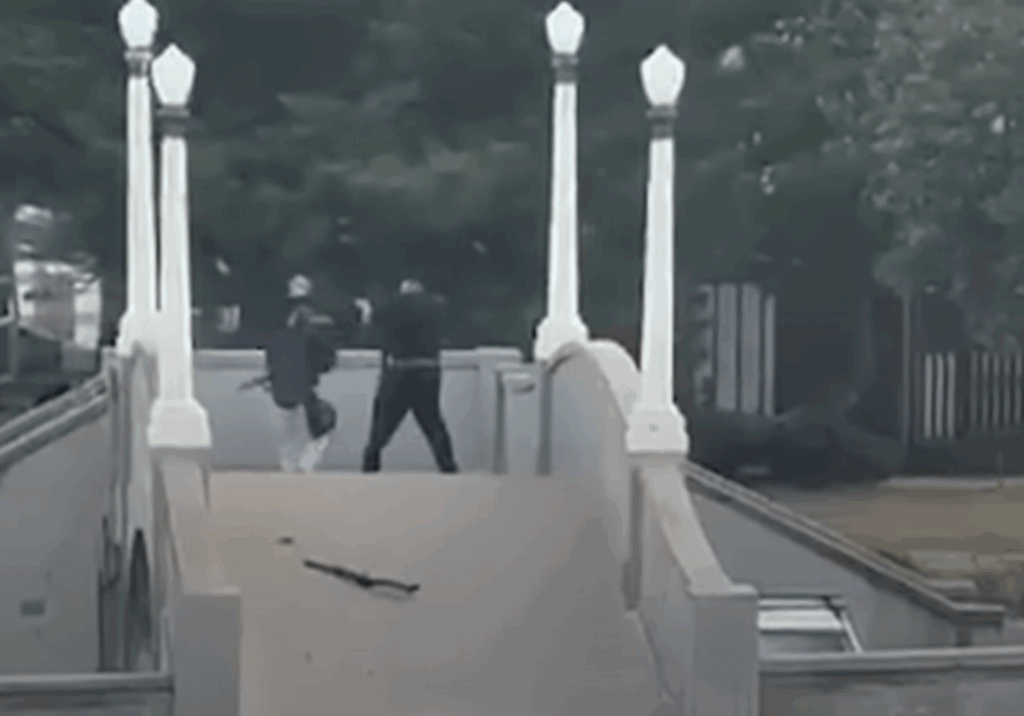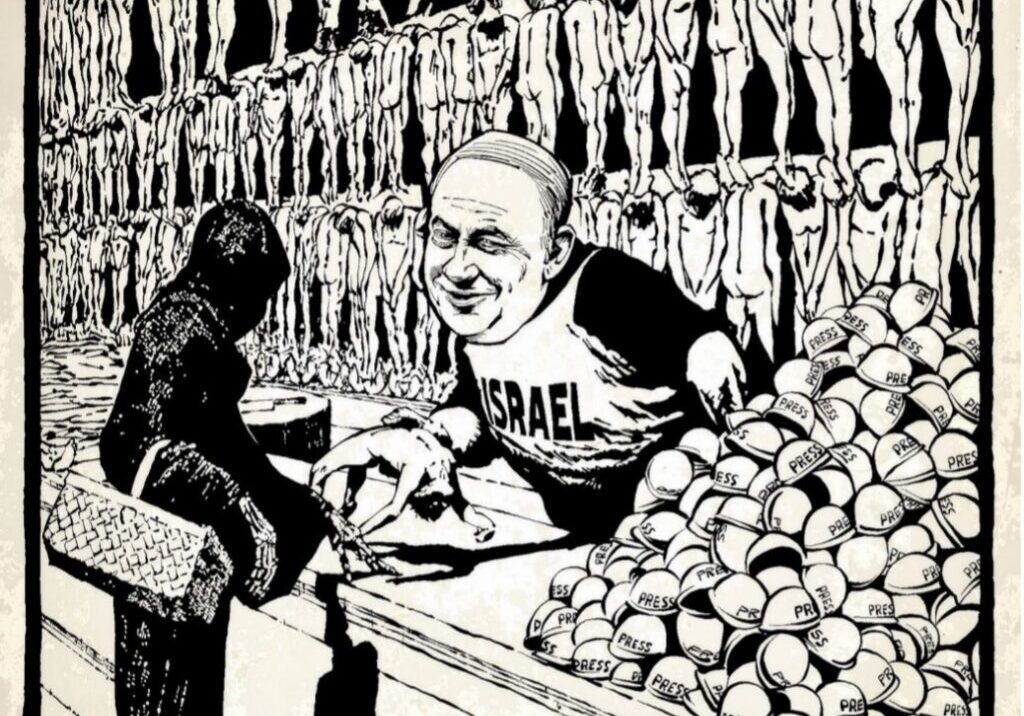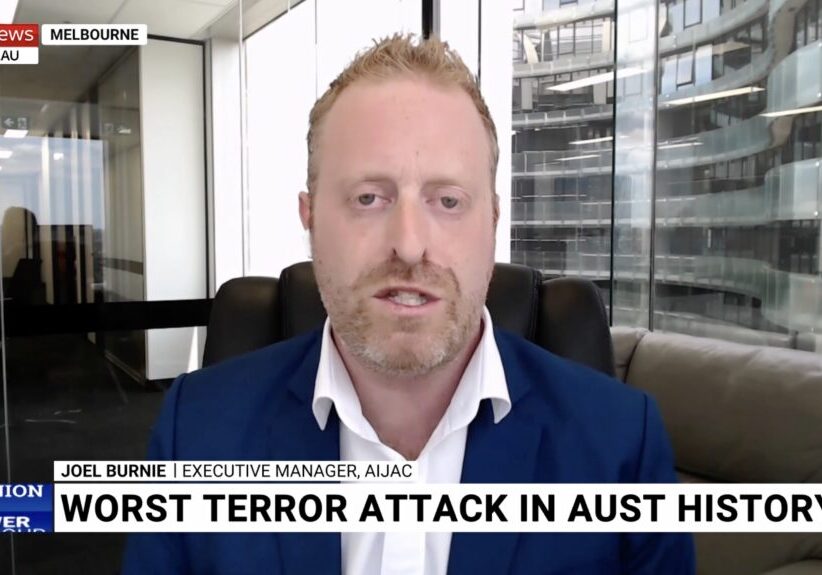Australia/Israel Review
Zealots Rising
Mar 1, 2006 | External author
A primer on Hamas
By Robert Satloff
 |
| Hamas may agree to a truce, but only as a prelude to resuming “armed struggle” later |
Hamas, the Arabic word for zeal, is the acronym of al-Harakat al-Muqawwama al-Islamiyya—the Islamic Resistance Movement. The group was established by the Palestinian branch of the Muslim Brotherhood (MB) at the outset of the first Palestinian uprising in late 1987, in order to provide a vehicle for the MB’s participation in the violent confrontation against Israel without exposing the Brotherhood and its wide network of social welfare and religious institutions to Israeli retaliation.
WHAT IS HAMAS’ MISSION?
As outlined in its 1988 charter (www.yale.edu/lawweb/avalon/mideast/hamas.htm), Hamas’ principal objective is the confrontation of Israel, which it considers a foreign cancer on sacred Muslim land. Indeed, without this mission, Hamas has no reason to exist; it would simply revert to being the Muslim Brotherhood. Numerous routes exist for achieving this goal, ranging from the evolutionary Islamisation of Palestinian society, which would overwhelm Israel through demography, to the armed struggle against the Jewish state.
WHO ARE ITS LEADERS?
Hamas has three circles of leadership. The first circle consists of local leaders inside the West Bank and Gaza. The most famous of these—Sheikh Ahmed Yassin and Abdul Aziz Rantisi—were killed by Israel in recent years; their place has been filled by others, such as Mahmoud al-Zahar and Ismail Haniyeh. The second circle includes Hamas’ external leadership, a “political bureau” that includes Khaled Mashal and Mousa Abu Marzouk. The third circle consists of the international leadership of the global Muslim Brotherhood movement, which includes respected Brotherhood figures such as Muhammad Akef, head of the Egyptian MB, and Yusuf al-Qaradawi, the Qatari-based Muslim scholar-cum-television star.
These three circles each have different spheres of responsibility. Considerable evidence indicates that both the insiders and the outsiders play a central role in the determination of Hamas strategy on terrorist operations against Israel and the solicitation and disbursement of funds for that purpose. In other arenas, the inner circle is more responsive to the daily concerns of Palestinian life and builds up Hamas’ political standing in the territories through its fight against corruption and its support of social welfare activities; the outer circle maintains contact with Hamas’ international supporters and funders, including leadership of other terrorist organisations and Iran. As for the outermost circle of global MB leaders, they are likely to begin to exert greater authority over the strategic direction Hamas takes now that Hamas has registered such a historic achievement for the global Islamist cause.
CAN HAMAS MODERATE?
Hamas is sure to evince tactical flexibility in its approach to governance, but it is highly unlikely to change any aspect of its fundamental strategy. If Hamas succeeds in convincing Abbas that it has put its violent intentions on hold in the pursuit of a good governance platform, it will likely form a cabinet of “clean” technocrats that preserves the independence and flexibility of the traditional leadership. It will focus its early time in power on fighting corruption; improving social services; and gradually Islamising the social, cultural, and education life of the Palestinian society. Nevertheless, none of this activity should be confused with strategic moderation or a fundamental change in Hamas’ long-term goal of eradicating Israel. Indeed, even in a post-election article he wrote for the Los Angeles Times and the Guardian (London), Khaled Mashal stated without equivocation Hamas’ principled rejection of the right of Israel to exist — in any size, in any borders. In assessing Hamas’ likely performance in power, understanding the following ideas is important.
Hamas Is Not in a Hurry. Organisationally, Hamas’ immediate objective is to deepen and broaden its levers of control over all aspects of Palestinian society. This control is the foundation of its long-term strategy to confront Israel. Hamas is fearful of a misstep that could threaten to abort its experiment at political power. Such a misstep could take the form of support for terrorist activity that is so brazen that it invites massive Israeli military retaliation or of puerile pursuit of unpopular domestic measures, such as banning rock music or ending mixed swimming at Gaza beaches, that invites public ridicule and political backlash. In this respect, Hamas will draw lessons from the experience of the Muslim Brotherhood in Jordan, which was awarded by King Hussein with five cabinet portfolios in 1990 only to leave office in disgrace several months later after a ham-handed attempt to implement unpopular aspects of its Islamist social agenda.
Hamas Will Talk Truce but Not Peace. Hamas will deign to talk with Israel and even be willing to work out various de facto relationships with Israeli government agencies (municipalities, ministries, and agencies responsible for transport, customs, provision of water and electricity, and the like). In Hamas’ worldview, such cooperation is a necessity of life that does not constitute diplomatic or official recognition. Hamas officials have even talked of reaching a long-term hudna (truce) with Israel, based on the latter’s withdrawal to the 1967 borders, agreement to a sovereign land bridge between the West Bank and Gaza, release of all Palestinian prisoners, and commitment to end all attacks on Palestinian targets. To reach this accord, Hamas is likely to agree to negotiate with the Jewish state. However tantalising a long-term period of calm may be, the prospect of a hudna should not be mistaken for renunciation by Hamas of its strategic objective of the eradication of Israel.
On the contrary, a hudna to which Israel agrees would provide Hamas with international political legitimacy to stamp out the secular nationalist movement (asserting that only the Islamists were able to achieve Israeli withdrawal to the 1967 borders and succeeded in doing so without giving peace in return) and with clear dominance on the domestic political scene. This consolidation of its authority, in turn, would be a prelude to Hamas’ preparation for the next stage in the battle against the Jewish state.
WHAT IS THE LEGAL STATUS OF A HAMAS-LED PALESTINIAN AUTHORITY?
This status is unclear, because the legal status of the territories themselves is murky. Since 1967, the West Bank and Gaza have been under Israeli control, implemented through Israel’s military government, which most international actors have termed as “occupation.” (Traditionally, the government of Israel disputed this characterisation of its control over the territories as “occupation,” with its attendant legal implications, though Ariel Sharon used the word in a speech to the UN General Assembly. His spokesman later explained he was referring to the occupation of people, rather than of territories.) The Oslo Accords — agreements signed between the State of Israel and the Palestine Liberation Organisation (PLO) — established a Palestinian Authority (PA) responsible for civil and security affairs in areas under its control. One institution created by those accords was the Palestinian Legislative Council (PLC), a representative body of all Palestinians resident in the territories (including formerly Jordan-held Jerusalem, whose Palestinian residents were permitted to vote in the recent PLC election). Most international law experts argue that the establishment of the PA did not derogate either Israel’s rights or its responsibilities as the occupying power, though in practical terms the establishment of the PA changed the situation.
The withdrawal of Israeli forces and civilians from Gaza in mid-2005 added a further complication. That withdrawal met the strict language of UN Security Council Resolution 242 vis-à-vis the Gaza front (that resolution called for “withdrawal of Israeli armed forces from territories occupied in the recent conflict”), a fact recognised in statements by Palestinian President Mahmoud Abbas.
With Hamas’ election, the situation enters an especially murky legal arena because Hamas is not a constituent group of the PLO and does not consider itself bound by any agreements reached between the PLO and Israel, including the Oslo Accords. Nevertheless, the Oslo Accords provide the legal authority for the PA and the PLC. In essence, Hamas ran for elected office in institutions it never before considered legal or legitimate. If the process of its empowerment proceeds, it will take over a governing authority whose legitimacy it does not accept in territory that, technically at least, remains fully under Israeli occupation.
One unilateral change in the current legal status that Israel may consider is to sever its customs union with the PA, at least in Gaza, which is governed by an economic agreement reach with the PLO known as the Paris Protocol. The practical implication of the severance of this accord would be to end the process by which Palestinian imports and exports come through Israeli ports, with Israeli authorities collecting customs and other taxes on behalf of the PA. In this circumstance, all Gaza trade would have to pass through Egypt. On the plus side for Israel, it would be relieved of the awkward responsibility of providing the economic lifeline to a PA led by a party bent on Israel’s destruction; the most serious downside would be Israel’s loss of any control over the flow of goods — including, potentially, weaponry, through the Egypt-Gaza border, with responsibility left in the hands of the Egyptians. At the same time, Palestinians would suffer because access though Egypt is much less efficient and much more costly than access through Israel. In an ironic twist, the trend inside Israel toward unilateral disengagement meshes quite nicely with Hamas’ strategy, because unilateralism changes the status quo without having to reach a negotiated agreement with the other side. Although powerful reasons exist for Israelis to pursue a unilateralist path, the fact cannot be avoided that Israeli unilateralism also complements Hamas’ objective to create its own self-contained Islamist state without any connection to Israel.
DOES HAMAS’ VICTORY HAVE A ‘SILVER LINING’?
No. The emergence of an armed, radical Islamist government in the heart of the Arab-Israeli arena — especially one that came to power through an allegedly democratic process blessed by the international community — has negative repercussions for Israel, for moderate Arab states, and for a wide range of US policies, including the goal of advancing democracy as the long-term response to the systemic problems of Arab and Islamic societies. This view does not mean that victory for the secular nationalist alternative to Hamas, the long-governing Fatah movement, would have been a happy outcome; Fatah had proven itself corrupt, incompetent and — at best — ambivalent about its renunciation of terrorism. Nevertheless, the international community has a stake in the success of the secular, nationalist model, despite the deep flaws in the party that represented that model.
The following three schools of thought advocate the idea that Hamas’ victory has a positive side:
• Citing the fact that the majority of Palestinians voted for secular nationalist parties as well as poll results suggesting that 60 percent of voters still subscribe to the two-state solution, advocates of the first school suggest that Hamas’ victory is not representative of the mainstream of Palestinian politics. However, by any international standard, Hamas’ sizable plurality vote in a multi-party legislative election constitutes an overwhelming landslide. Moreover, given the presence of other parties on the ballot who ran on a platform emphasising law and order, the fight against corruption, and promises to improve the economic situation, Hamas voters clearly knew they were voting for the one major party that rejected any form of peace process with Israel.
• The second school of optimists points to the experience of other Islamist parties (in Turkey, for example) to suggest that Hamas stands a good chance of eventually moderating its currently intransigent views. However, this view overlooks the absence of key factors that made possible the co-option or moderation of those parties. The record shows that the few examples of co-option of Islamic parties occurred only after decades of evolution in countries that enjoyed strong institutions, powerful security apparatuses, and a supreme guarantor of the sanctity of the political system (for example, the army in Turkey, or the king in Jordan or Morocco). Regrettably, the Palestinian case lacks all these attributes.
• The third school describes the election results as useful for unmasking the true political leanings of the Palestinian populace; exposing the hollow political support among Palestinians for moderate politics, secular nationalism, or a negotiated two-state solution; and generally injecting a salutary dose of clarity into the Arab-Israeli arena. This group usually advocates permitting Hamas to take the reins of power, confident that it will fail in government, thereby undermining the appeal of the Islamist model. However, this view overlooks the potential for a radical Islamist party, once in power, to maintain its grip despite political failure. It could do so through undemocratic means, such as suspending elections in the event of “national emergency,” or by rigging the vote, through outright vote-stealing or with an Iranian-style election engineering that permits only a limited slice of candidates to even appear on the ballot.
HOW SHOULD THE WORLD RESPOND TO A HAMAS-LED GOVERNMENT?
In strategic terms, the emergence of a Hamas-led government in the West Bank and Gaza constitutes a “democratic coup” against the institutions of peacemaking and a fillip to radical Islamists everywhere. It must be recalled that the entire purpose of the peace process is to provide a diplomatic means to ensure Israel’s security and enable Palestinians to enjoy their legitimate rights; a process that gives birth to a Palestinian government whose raison d’être is Israel’s destruction is, by its very nature, illegitimate.
More generally, the Hamas victory has had the effect of both internationalising and Islamising a conflict that had become a local, national dispute between Israelis and Palestinians. However bloody the Palestinian uprising of 2000–2005 had been, one of its most notable aspects was that no other Arab state actively sided with the Palestinians or even was affected by the violence. However, the Hamas victory changed all that. Overnight, the Israel-PA border became the front line of the great international contest between radical Islamists and the West, with the world’s most radical actors — Iran, al-Qaeda, and Hezbollah — champing at the bit to exploit this opportunity to carry their battle to the gates of Jerusalem.
A “solution” to this problem can only be achieved by either preventing the assumption of power by a Hamas-led regime or, once in office, ensuring its swiftest possible collapse, through means that are as nonviolent as possible. Only the speedy collapse of this government—achieved through an effective quarantine of international economic aid and diplomatic support—will erode the appeal of the radical Islamist model, both among Palestinians and more widely in Arab and Muslim societies. The longer a Hamas-led government stays in power, the greater the chance that it will deepen its hold on Palestinian institutions (including the military), welcome the contribution of radical Islamist opportunists, and prepare for the eventual resumption of the armed struggle against Israel.
![]()
Dr. Robert Satloff is the Executive Director of The Washington Institute for Near East Policy. This essay is excerpted from a new Washington Institute Study, Hamas Triumphant: Implications for Security, Politics, Economy, and Strategy. © Washington Institute for Near East Policy, reprinted by permission, all rights reserved.
Tags: Islamic Extremism






